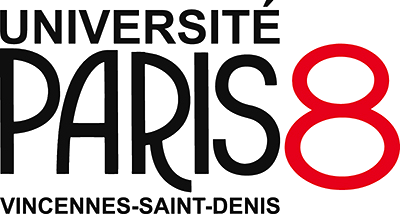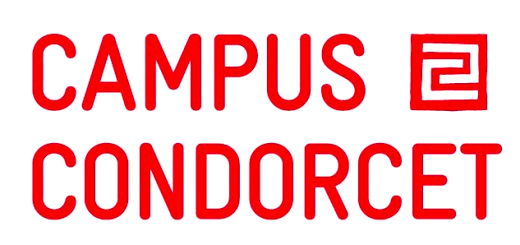Membres du Ladyss impliqués
Anne Sourdril (coordinatrice pour la France)
Edwige Marty (postdoctorat)
Coordinateur du programme
Thomas Mote, University of Georgia (UGA), United States of America
Participants du programme extérieurs au laboratoire
Dominique Barjolle (UNIL, Suisse), Sebastian Eiter (NIBIO, Norvège), Pablo Manzano (BC3, Espagne), Anne Sourdril (CNRS, France), Brian Burke (ASU, Etats-Unis), Rebecca McCulley (UKRF, Etats-Unis), Aaron Thompson (UGARF, Etats-Unis), Jennifer Thompson (UGARF, Etats-Unis), Sechindra Vallury (UGARF, Etats-Unis), Meredith Welch-Devine (UGARF, Etats-Unis ), Coralie Artano CSPS (Commission syndicale du Pays de Soule, France), Francesca Pasetti Bombardella (Consejo de la Mesta, Espagne)
Institutions du consortium
UGA (University of Georgia) Etats-Unis, UNIL (Université de Lausanne) Suisse, LADYSS ( Laboratoire Dynamiques Sociales et Recomposition des Espaces – CNRS) France, BC3 (Basque Center For Climate Change) Espagne, NIBIO (Norwegian Institute of BIOeconomy) Norvège, ASU (Appalachian State University) Etats-Unis, UKRF (University of Kentucky Research Foundation) Etats-Unis, UGARF (University of Georgia Research Foundation) Etats-Unis, CSPS (Commission syndicale du Pays de Soule) France, Consejo de la Mesta, Espagne
Résumé du programme en français
Les paysages et leurs composantes écologiques et sociologiques fournissent des services écologiques et socioculturels et sont porteurs d’informations essentielles pour comprendre les impacts du et lutter contre le changement climatique. Ils sont aussi vulnérables à ces changements comme à d’autres facteurs de stress. En examinant les paysages associés au pastoralisme en France, en Norvège et en Espagne, nous détaillerons les menaces, notamment climatiques, qui pèsent sur ce patrimoine culturel immatériel (PCI). Nous investiguerons également les capacités d’adaptation des systèmes socio-écologiques associés à ces paysages, ainsi que les méthodes permettant de maintenir ce PCI par le biais d’actions communautaires et politiques.
Notre projet présente trois objectifs de recherche-action établis en lien avec des partenaires de la société civile :
– Développer une boîte à outils aidant les communautés et les décideurs à évaluer la vulnérabilité et la résilience des paysages culturels.
– Développer des outils de communication pour le public et les décideurs précisant les menaces touchant le patrimoine culturel et la façon dont la connaissance de ce patrimoine culturel peut aider à la mise en œuvre d’actions pour l’atténuation et l’adaptation au changement climatique.
– Contribuer au champ scientifique autour de la vulnérabilité et la résilience des paysages culturels et autour de la construction de stratégies d’atténuation et d’adaptation au changement climatique.
Notre équipe s’appuie sur de multiples collaborations sur le long terme et une expertise des terrains d’étude. Partenaires français, espagnols et américains modélisent actuellement les changements futurs du système pastoral basque français. Le Centre basque pour le changement climatique est spécialisé dans le pastoralisme transhumant espagnol et la modélisation écologique ; les partenaires suisses ont conçu des outils pour mesurer la résilience des moyens de subsistance, et les partenaires norvégiens ont acquis une expérience en matière de modélisation du système pastoral basque français.
Résumé du programme en anglais
Cultural landscapes provide essential ecological and sociocultural services and contain insights needed to combat climate change, but they are vulnerable to climate change and other stressors. By examining the cultural landscapes of transhumant pastoralism in France, Norway, and Spain, we will detail climate and other threats to this intangible cultural heritage (ICH), the characteristics and factors that create adaptive capacity in these
systems, and methods for sustaining ICH through community action and policy. The research supports three goals established with societal partners:
- Develop a toolkit that helps communities and decision-makers assess the vulnerability and resilience of cultural landscapes.
- Develop communication resources for the public and policy makers illustrating why threatened cultural heritage matters and how cultural heritage can
contribute to climate change mitigation and adaptation.
- Contribute to scientific literature on the vulnerability and resilience of cultural landscapes
and culturally informed strategies for climate mitigation and adaptation.
Our team builds on multiple collaborations and deep expertise. The most significant involves French, Spanish, and U.S. partners modeling future changes in the French Basque pastoral system. The Basque Centre for Climate Change specializes in Spanish transhumant pastoralism and ecological modeling; Swiss partners designed tools for measuring livelihood
resilience, and partners in Norway have expertise in agricultural landscape change, cultural heritage, and public participation. Societal partners (Syndicate of Soule and Concejo de la Mesta) will contribute to project management and synthesis, and farmers are fully engaged in collecting and analyzing data. In addition to adaptation and management tools, the project supports guides for professional journalists and farmer-made films to spread awareness and increase public support for cultural heritage protection.? Each team ensures that their respective portion falls within the guidelines of their funding annex.
Mots-clés en français
patrimoine culturel immatériel, connaissances écologiques traditionnelles, pastoralisme, transhumance, changement climatique, adaptation, paysages culturels, modélisation du climat, réglementation, coproduction de connaissances, etc.
Mots-clés en anglais
intangible cultural heritage, traditional ecological knowledge, pastoralism, transhumance, climate change, adaptation, cultural landscapes, climate modeling, policy, knowledge co-production
Données de recherche collectées
à venir
Publications
à venir




